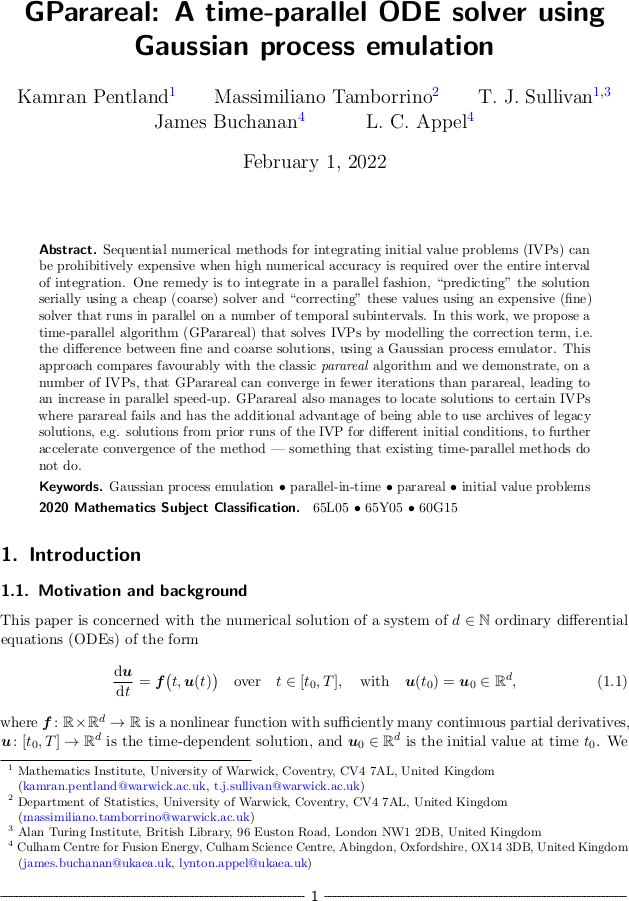
GParareal: A time-parallel ODE solver using Gaussian process emulation
Kamran Pentland, Massimiliano Tamborrino, James Buchanan, Lynton Appel and I have just uploaded a preprint of our latest article, “GParareal: A time-parallel ODE solver using Gaussian process emulation”, to the arXiv. In this paper, we show how a Gaussian process emulator for the difference between coarse/cheap and fine/expensive solvers for a dynamical system can be used to enable rapid and accurate solution of that dynamical system in a way that is parallel in time. This approach extends the now-classical Parareal algorithm in a probabilistic way that allows for efficient use of both runtime and legacy data gathered about the coarse and fine solvers, which may be a critical performance advantage for complex dynamical systems for which the fine solver is too expensive to run in series over the full time domain.
Abstract. Sequential numerical methods for integrating initial value problems (IVPs) can be prohibitively expensive when high numerical accuracy is required over the entire interval of integration. One remedy is to integrate in a parallel fashion, “predicting” the solution serially using a cheap (coarse) solver and “correcting” these values using an expensive (fine) solver that runs in parallel on a number of temporal subintervals. In this work, we propose a time-parallel algorithm (GParareal) that solves IVPs by modelling the correction term, i.e. the difference between fine and coarse solutions, using a Gaussian process emulator. This approach compares favourably with the classic parareal algorithm and we demonstrate, on a number of IVPs, that GParareal can converge in fewer iterations than parareal, leading to an increase in parallel speed-up. GParareal also manages to locate solutions to certain IVPs where parareal fails and has the additional advantage of being able to use archives of legacy solutions, e.g. solutions from prior runs of the IVP for different initial conditions, to further accelerate convergence of the method - something that existing time-parallel methods do not do.
Published on Tuesday 1 February 2022 at 12:00 UTC #preprint #prob-num #pentland #tamborrino #buchanan #appel